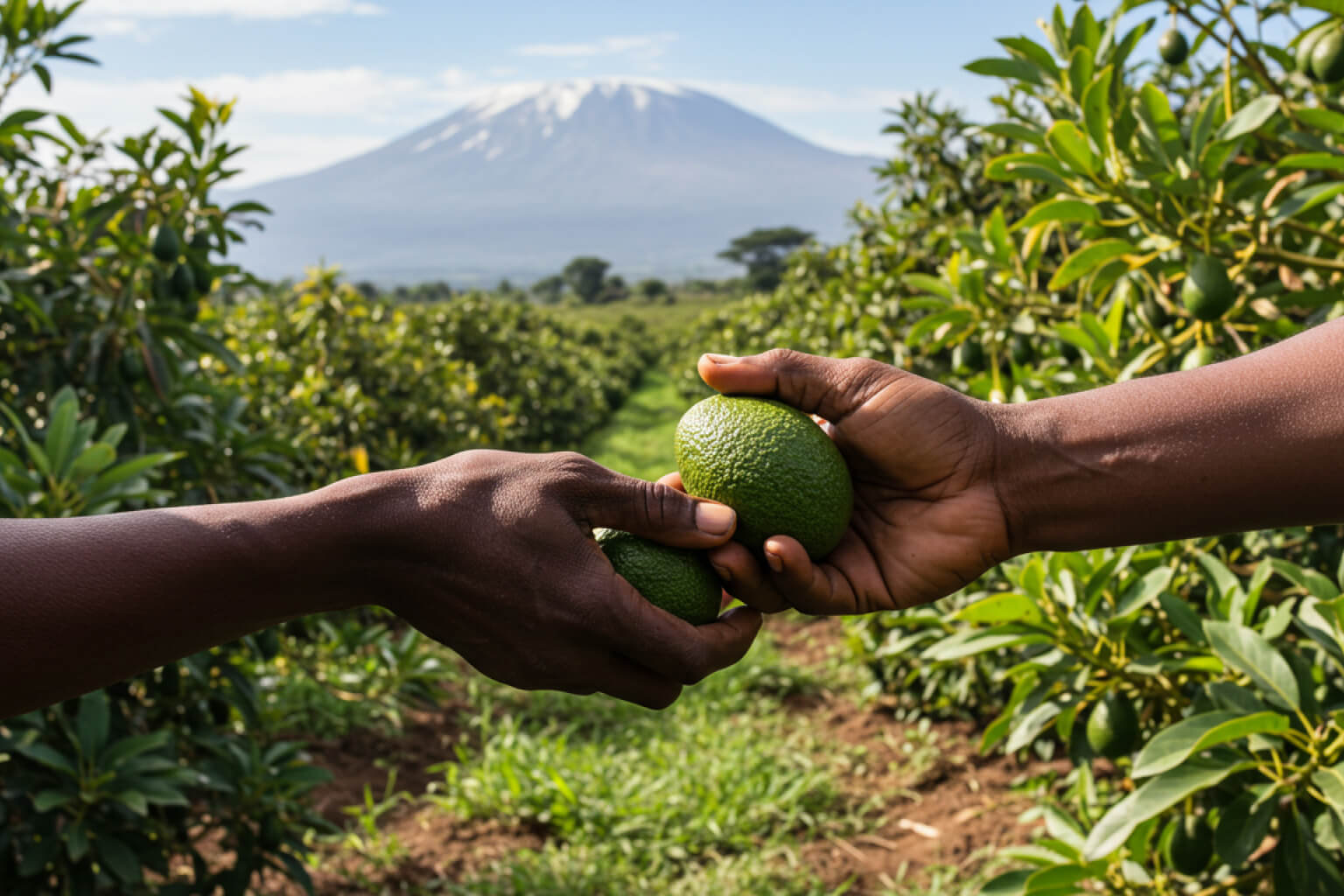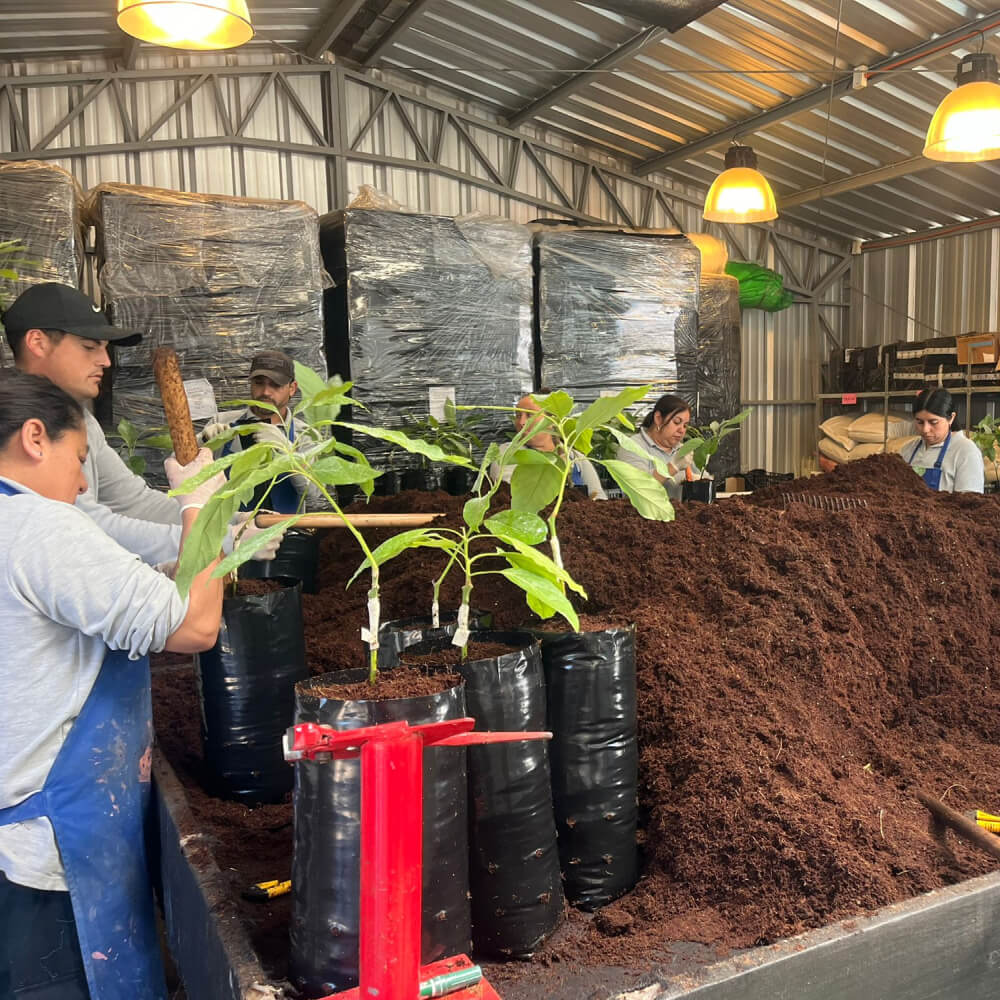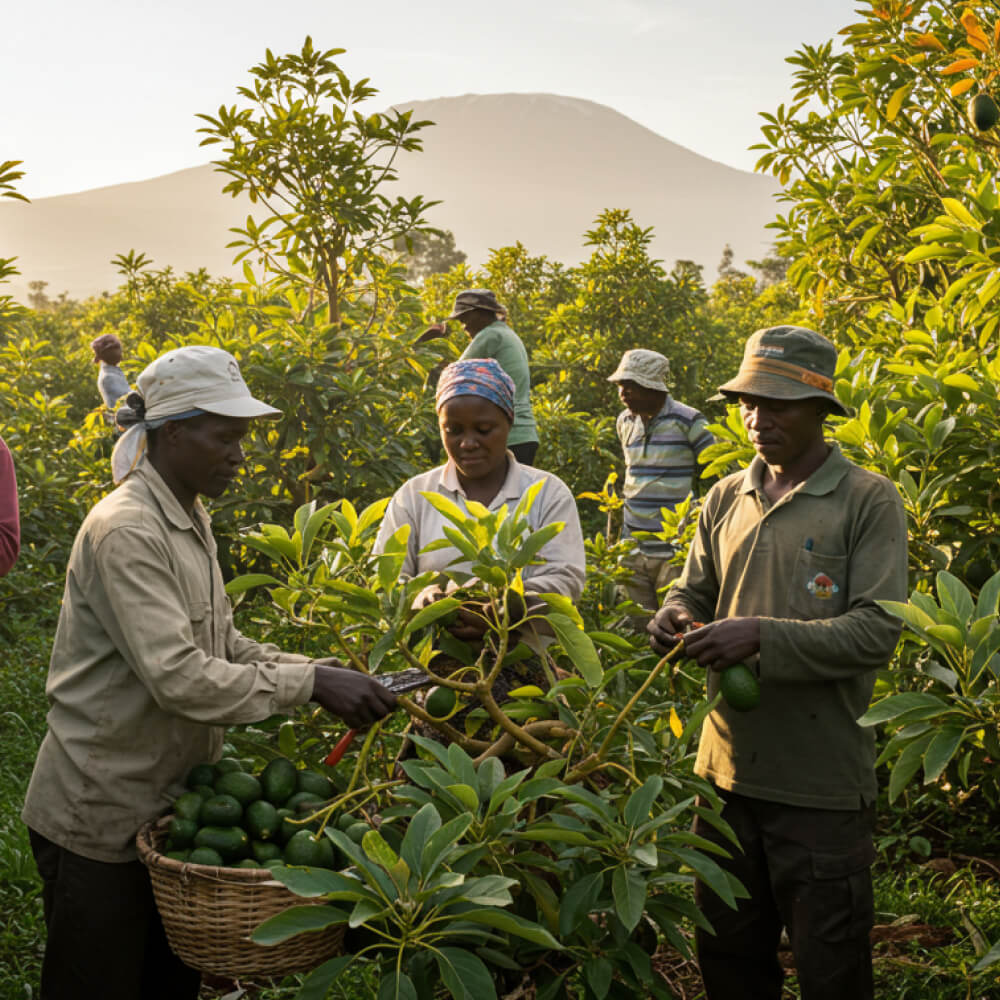Fair Labour & Local Communities
Avocado production supports the livelihoods of millions of people around the world. It boosts employment, reduces poverty, and contributes significantly to the economies of many grower countries.


Did you know?
In South Africa, half of the country’s produced avocados are consumed locally, or processed for oil.
In Chile, it’s estimated that local consumption stands at 30 to 35%.
Green Gold
For many producer countries, such as Peru, Chile and South Africa, growing and exporting avocados contributes significantly to their local economies.
In creating jobs and fostering technical knowledge among farmers and their employees, the production and export of avocados supports the livelihoods of millions and has helped to lift people out of poverty..
.webp)
As avocados are a higher-value crop, their farming can foster technical skills – as well as command higher wages – than is the case with many other agricultural crops.

For example, in Chile, the third-largest supplier of avocados to Europe, a study commissioned by the government found that the national avocado industry had generated around 35,000 jobs and contributed to the reduction of poverty amongst the population, particularly in rural towns and communities.



The report also revealed that workers on the Hass avocado plantations receive a higher than median monthly income, and benefits including food, transportation and social services, not only for the worker but their families too.

With job growth and higher incomes, avocado production has a track record of lifting local communities out of poverty.
Peru, Europe’s largest supplier of avocados, has experienced huge growth in its agricultural sector in the past three decades.

The International Monetary Fund states that agricultural exports, specifically citing avocados, have significantly contributed to a reduction in poverty in some rural regions from 80% in 2004 to 36% in 2018.

Green Gold
For many producer countries, such as Peru, Chile and South Africa, growing and exporting avocados contributes significantly to their local economies. In creating jobs and fostering technical knowledge among farmers and their employees, the production and export of avocados supports the livelihoods of millions and has helped to lift people out of poverty..
As avocados are a higher-value crop, their farming can foster technical skills – as well as command higher wages – than is the case with many other agricultural crops.
For example, in Chile, the third-largest supplier of avocados to Europe, a study commissioned by the government found that the national avocado industry had generated around 35,000 jobs and contributed to the reduction of poverty amongst the population, particularly in rural towns and communities.

The report also revealed that workers on the Hass avocado plantations receive a higher than median monthly income, and benefits including food, transportation and social services, not only for the worker but their families too.
With job growth and higher incomes, avocado production has a track record of lifting local communities out of poverty. Peru, Europe’s largest supplier of avocados, has experienced huge growth in its agricultural sector in the past three decades.
The International Monetary Fund states that agricultural exports, specifically citing avocados, have significantly contributed to a reduction in poverty in some rural regions from 80% in 2004 to 36% in 2018.

Opening Global Doors
Many of the World Avocado Organisation’s biggest members often work with smaller domestic growers, allowing these smaller growers to access global markets and international buyers.
Local communities stand to benefit from these ‘outgrower programmes’. For example, as farmers began growing avocados in the Kilimanjaro region of Tanzania, the country’s first commercial, international grade avocado producer was established in 2007.
This producer set up contracts with smallholder farms, offering more secure, long-term employment for over 2000 farmers, and a pathway to selling their avocado produce globally.

Empowering Growers
Education projects and upskilling initiatives can also improve the lives of workers. Many farms offer their employees the chance to take part in training programmes to enhance their agricultural skills.
Workers earn competitive salaries, enjoy paid holidays, access to daycare services and free meals for their young children.
Many grower countries are also experiencing a shift as avocados are produced for their own domestic consumption, as well as export. This means that they enjoy a steady supply of nutritious and delicious fruit for their own benefit, beyond economic growth.

Opening Global Doors
Many of the World Avocado Organisation’s biggest members often work with smaller domestic growers, allowing these smaller growers to access global markets and international buyers.
.webp)
Local communities stand to benefit from these ‘outgrower programmes’.
For example, as farmers began growing avocados in the Kilimanjaro region of Tanzania, the country’s first commercial, international grade avocado producer was established in 2007.
.webp)
This producer set up contracts with smallholder farms, offering more secure, long-term employment for over 2000 farmers, and a pathway to selling their avocado produce globally.
.webp)


Empowering Growers
Education projects and upskilling initiatives can also improve the lives of workers.
Many farms offer their employees the chance to take part in training programmes to enhance their agricultural skills.

Workers earn competitive salaries, enjoy paid holidays, access to daycare services and free meals for their young children.
Many grower countries are also experiencing a shift as avocados are produced for their own domestic consumption, as well as export.
This means that they enjoy a steady supply of nutritious and delicious fruit for their own benefit, beyond economic growth.
